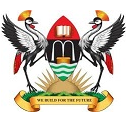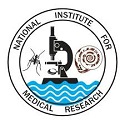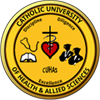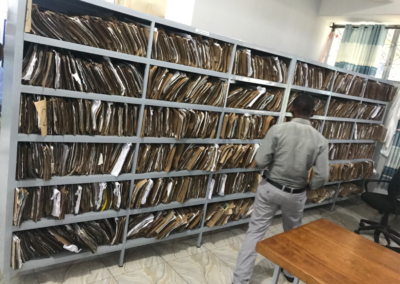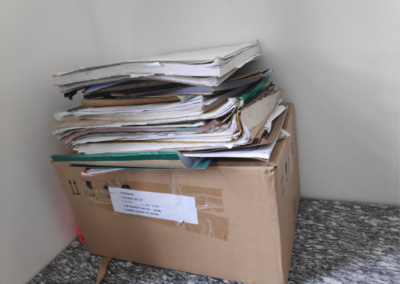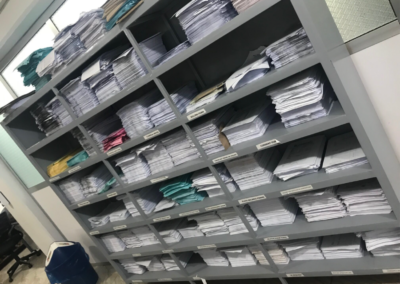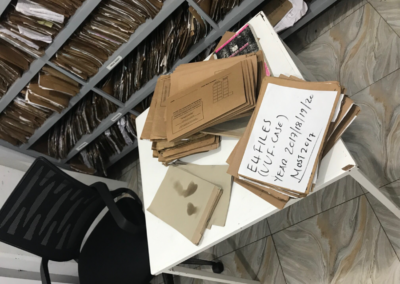How can Medical Records be Better Used to Tackle AMR?
![]()
Medical Records Keeping, Information Flows and AMR in Mwanza, Tanzania and Mbarara, Uganda
This project focuses on clinic-based medical record keeping and the flow/networks of information about patients and antibiotics. In many high-income settings, electronic health records (EHR) are kept on all patient consultations. These help healthcare professionals understand a patient’s medical and prescription history, and their ‘pathways to care’. In the context of antibiotic provision, these theoretically allow more effective prescription, avoiding inappropriate provision of ineffective treatments which might promote AMR. The degree to which patient hard copy and digital records facilitate optimal antibiotic treatment in East Africa is relatively unexplored. The degree to which records are used, useful, complete and integrated, and the degree to which information flows between records, patients, doctors, labs and administrators is not well mapped or understood, and it may be there are simple efficiencies which would merit intervention to improve antibiotic stewardship or patient care more generally. In addition, the degree to which the COVID-19 situation has disrupted, facilitated/improved record-keeping and information flow is an important question.
In order to address these issues, we are using qualitative in-depth methods (in-depth interviews and focus groups) to investigate the scope of patient record keeping, and the issues surrounding this.
Overall Research Questions:
- What is the scale and nature of patient record keeping on consultations and prescriptions, and to what extent do they facilitate optimal health care provision and antibiotic stewardship?
- Has the COVID-19 pandemic had any impact on record keeping?
Joseph Mwanga | Stephen Mshana | Mike Kesby | Kate Fredricks | Katy Keenan
